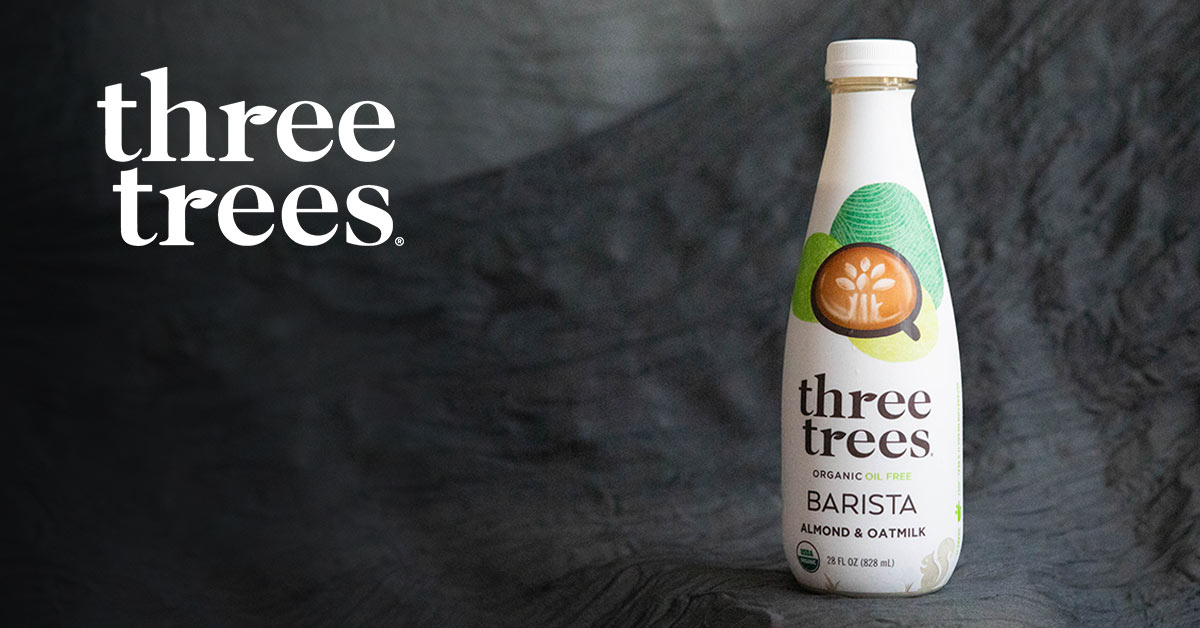Over its near-decade on the market, alt-milk maker Three Trees has added many different nuts, seeds and even oats into its mixes, but one ingredient – outside capital – has been left out of the recipe.
“I was focused on making a good product and selling it,” stated Jenny Eu, Three Trees’ founder. “I was focused on running the business rather than raising capital and that, I think, just comes from my personality – I like to make sure every step I take is solid.”
Eu said the idea of selling something intangible – like future growth to investors – isn’t her strength. Instead she built the business by focusing on elements she could control: bringing a differentiated product to a then-emerging category and taking the time to build the business one retail partner at a time.
That means Three Trees has remained bootstrapped since its start in 2014, which Eu believes makes the brand a true category outlier.
“We’re probably one of the only [plant-based milks] that doesn’t have investor money – I like to joke that makes us a unicorn since that term gets thrown around a lot here in Silicon Valley,” said Jenny Eu, founder of Three Trees.
The San Francisco-based brand recently launched a new Barista Blend product, to its lineup which also includes Original (Almond), Vanilla Bean (Almond), Oat, Pistachio and Black Sesame (Almond and Black Sesame). The new formulation, which includes only six ingredients (water, organic oats, organic almonds, organic chicory root fiber, baking soda and French grey salt), took a bit of time to perfect, Eu said.
“We are often not the first to do something, but we like to think that we do it better. Oat milk has been popular for coffee drinks for a long time now, but we looked at most of the oat milks on the market and said ‘that’s not who we are.’”
Most plant-based Barista and oat milks contain oils, stabilizers and gums to help create a creamy mouthfeel and a stable, foamy structure necessary for latte art. Three Trees incorporates “seven times more almonds than other brands,” into its milks, Eu said, in order to eschew additives and achieve that same effect.
The abundance of almonds helps circumvent the need for added oil, due to the ingredient’s high fat content, but it also jacks up the product’s price tag, which carries an MSRP of $7.99 per 28 oz. bottle. In addition, Three Trees only uses organic almonds, which according to Eu, currently cost twice as much as the conventionally grown alternative. For reference, conventional almonds cost about $1.55 per pound as of August 23.
The price point has also led Eu to be wary of expanding in new channels too soon. While coffee shops may seem like the intuitive next step for its Barista Milk, Eu isn’t sure the small company is ready to sell to cafes just yet. The price point and perishability will be a challenge for small cafe owners, she said, since they have to front the cost of the milk, and then eventually pass that premium onto willing customers. She said while baristas have expressed interest in the product, she has not yet seen a strong consumer demand in cafes.
“Everything boils down to the consumer, if consumers start to value it enough to want to pay a premium… then definitely I think it can work.”
For now, the product will be primarily for existing customers who are making coffee at-home – a group that she said already understands the brand, its points of differentiation, and its price. In the meantime she is focused on supporting the launch by growing Three Tree’s team. Eu aims to double Three Trees’ current headcount, which currently totals 10 employees, over the next year, and bring in support across all functions including operations, R&D, sales and marketing.
Eu said during the decade she’s been playing in the space, she has watched as consumers have steadily gravitated toward cleaner, better-for-you products across all plant-based categories. While competitors like Malk, which has raised over $17 million from investors to-date, and new concentrated alt-milk formats boasting simple ingredients have also gained momentum in the market, she believes the newcomers bring proof of concept to Three Trees’ business.
“That’s something I predicted when I started the business – there were already plant based milks, but none of them were clean,” said Eu. “I thought people are going to trade up in this category like the way they did with yogurt in the 90’s…It’s like any category: first it’s new, then there’s only a few limited offerings, and then people start to come in and can improve it.”
